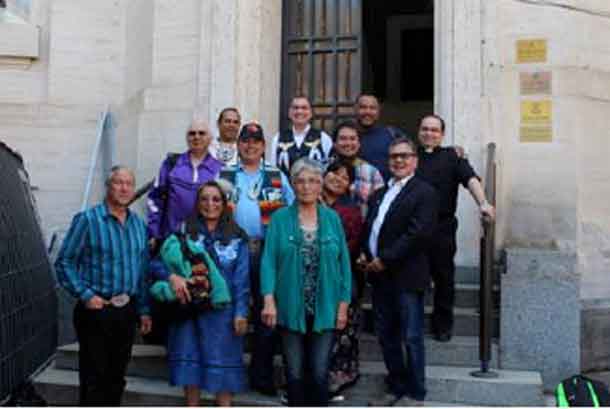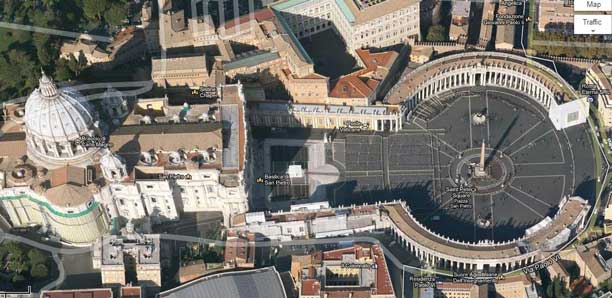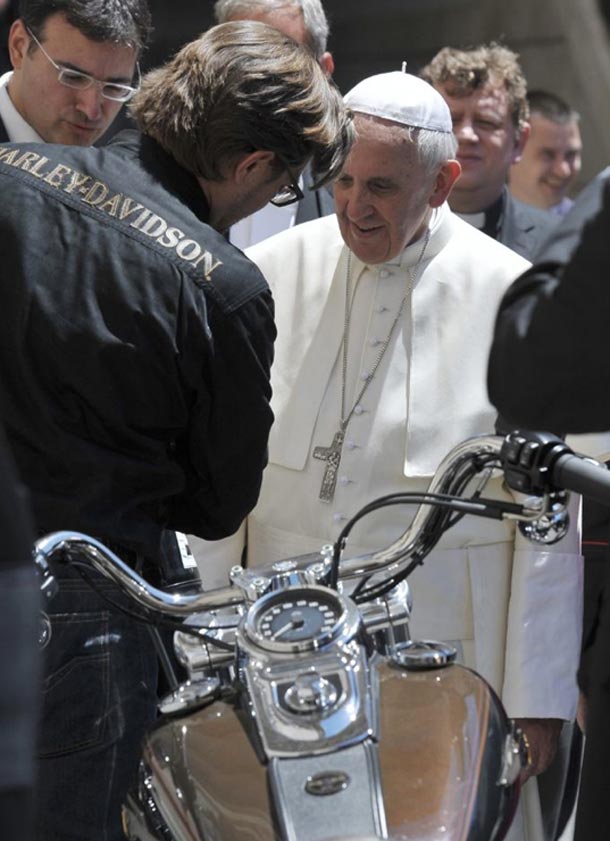
ROME – On May 4th, 2016, the anniversary date of an infamous Vatican decree authorizing the spoliation of indigenous lands and peoples worldwide, eleven indigenous leaders from around the world arrived in St Peter’s Square under the banner of the Long March to Rome, a movement seeking revocation of three Papal Bulls because:
(i) they were the “blueprint” for conquest of the New World;
(ii) they provided moral justification for the enslavement and conquest of indigenous peoples worldwide;
(iii) they are an ongoing violation of contemporary Human Rights legislation; and,
(iv) other communities currently struggling to save their lands are threatened by modern-day ideologies of inequality anchored in the papal bulls.
These eleven leaders had landed on the shores of Europe one week earlier, and convened at a historic Gathering of Nations held in Florence Italy to discuss the issue of the Papal Bulls. The leaders were determined to tell Pope Francis that it was time for the Vatican to own up to its responsibility for legitimizing a genocide committed against indigenous peoples and to show its good faith by revoking three Papal Bulls of Discovery: Dum Diversas (1452), Romanus Pontifex (1455) and Inter Caetera (1493), still in force today.
Coming from many Nations, they carried the weight of 370 million Indigenous Peoples on their shoulders.
The delegation represented the Haudenosaunee, also known as the Six Nations Iroquois Confederacy, the Assembly of First Nations Canada, representing 634 First Nations from across Canada with 1.4 million citizens from 58 different Indigenous nations, Canada’s Truth and Reconciliation Commission, the Umatilla confederacy of the Pacific Northwest, the Yakama, Oglala Sioux, Shawnee, Mapuche, Navajo Diné and Apache Ndee.
When Pope Francis’ handlers informed them that the Holy Father could only meet five of them, as a body, they refused. It was “everybody or nobody” said Chief David Close, Cayuse Chief and Delegation lead. One by one, they approached Pope Francis, each delivering the message in their own way, that Pope Francis should rescind the Papal Bulls.
After the Papal audience, they immediately boarded several taxis, and crossed Rome to the offices of the Pontifical Council for Justice and Peace at Piazza San Calisto for a high-level meeting with Vatican heavyweight Archbishop Silvano Tomasi.
During the head-to-head, Archbishop Tomasi acknowledged that the Vatican may have to consider issuing a statement and maybe even an apology. Revocation is on the table. Everyone agreed during the meeting that talks should go forward.
For indigenous leaders, this engagement is significant. After five hundred years, the Vatican has finally recognized that the issue of the Papal Bulls of Discovery is one that can no longer be ignored.
For more information on the Long March to Rome, please consult the website:




